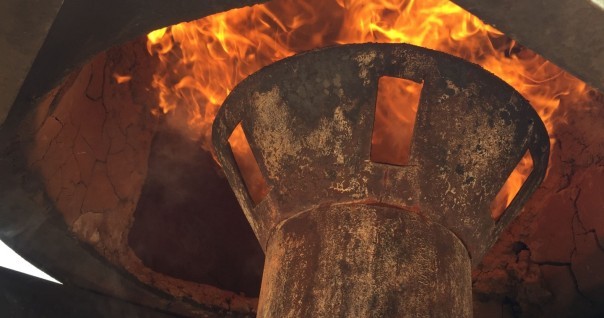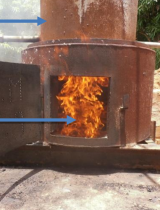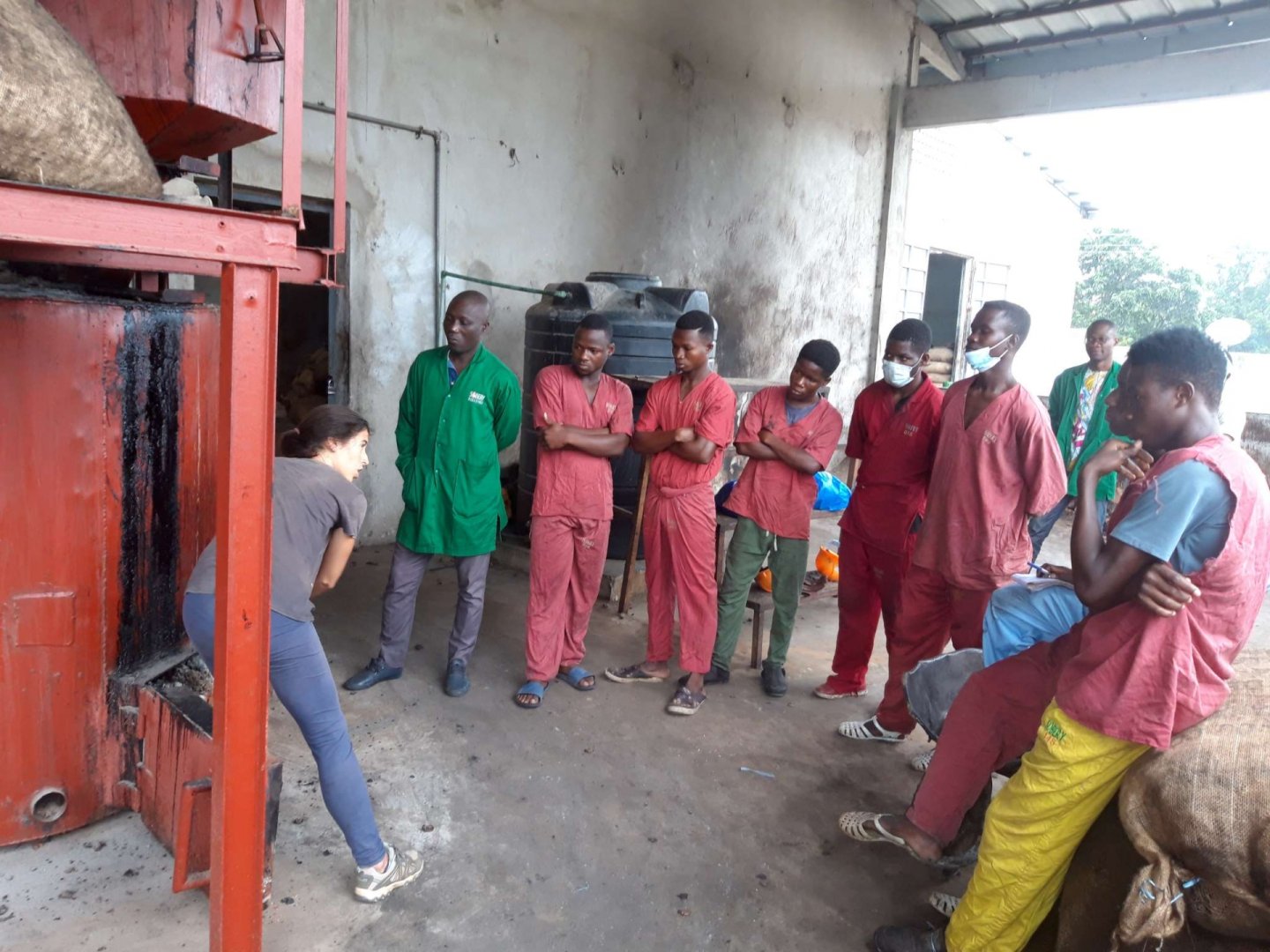

Disseminate innovative technologies, share knowledge and transfer skills
Theoretical and practical training of SOBERY personnel in the use of the H2CP pyrolysis furnace for cashew shells
After ensuring the proper functioning of the "H2CP" pyrolysis furnaces installed, the project team proceeded to train the personnel of the cashew processing unit of SOBERY SARL. Performed over a period of three days, this training, both theoretical and practical, was intended to explain how the pyrolyser works but also to get the unit staff to take ownership of the practical use of this device. technology. In total, nine employees of SOBERY SARL were trained, including boiler room workers and technical and production managers.
Key figures :
Ignition time: 4 minutes Quantity of cooked nuts / h: 1145 kg Quantity of hulls processed: 328 kg Quantity of coal produced: 50 kg or 15% yield Significant reduction of toxic smoke until complete elimination
Training of artisan masons in the construction and installation of biodigesters for cassava / attiéké
Two groups of cassava processing in the city of Bouaké recently benefited from a biodigester for the recovery of the effluent from the cassava processing activity in Attiéké.
These are 2 biodigesters of 4m3 and 8m3 capacity (volume equivalent to the amount of biogas produced respectively). These two installed biodigesters will process 100 to 200 liters of manioc effluent per day to produce biogas. It was the occasion for Nitidæ to train four artisan masons in the construction of the Indian-type biodigesters.
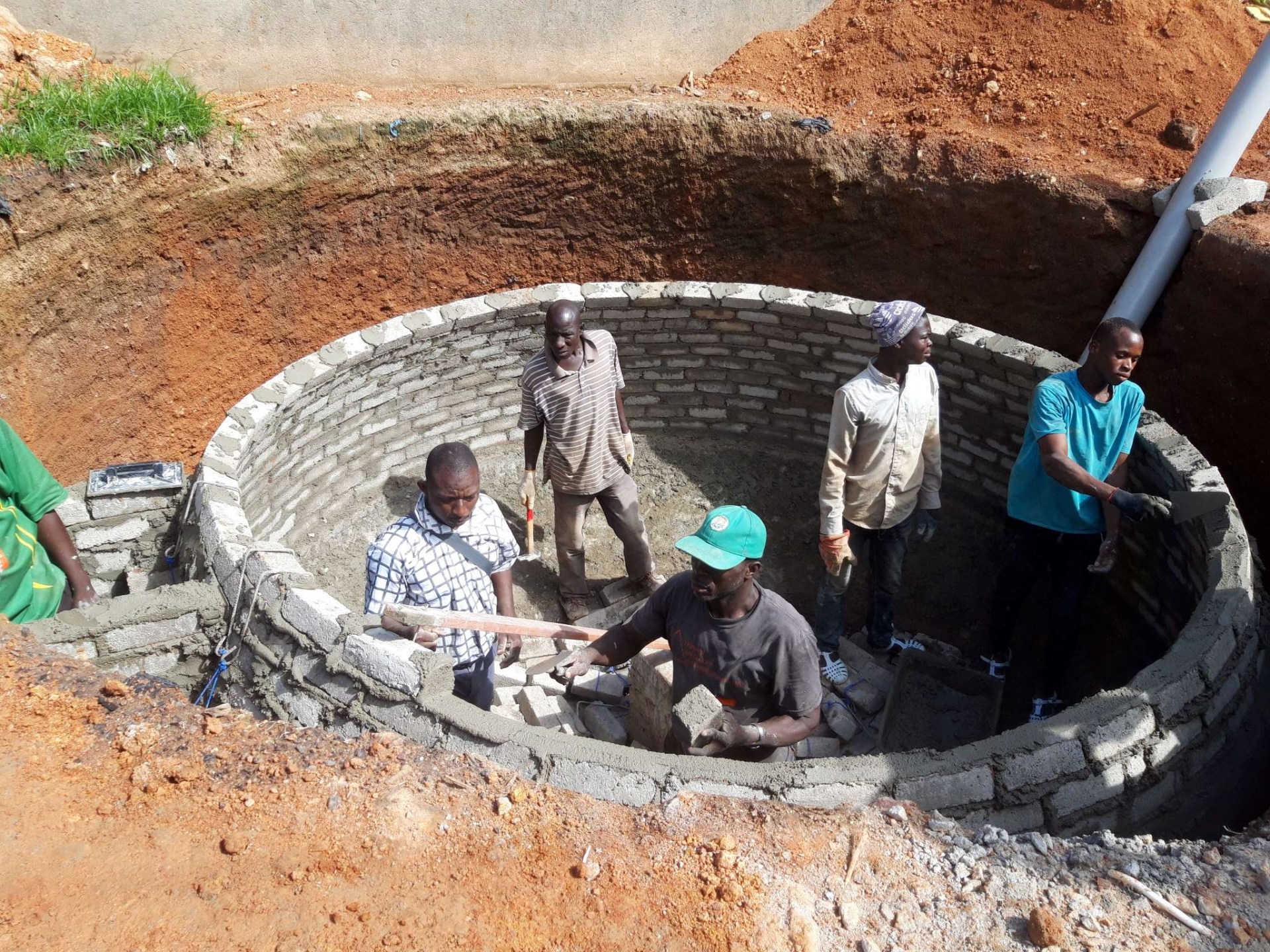
Note that there are no trained masons in this area in Bouaké, or even in the whole country
It is precisely this void that Nitidæ attempts to fill through with the Agrovalor project. To this end, more experienced Malian builders have been called to train Ivorian craftsmen. This is a pattern that is reminiscent of the one followed last year for training in the construction of improved cookstoves "double pot" for cooking attiéké, where professionals Burkina Faso had ensured the sharing of knowledge. This will have the purpose of having a skilled workforce that can develop this activity autonomously thereafter. Another 8 biodigesters should be installed by the end of the project.
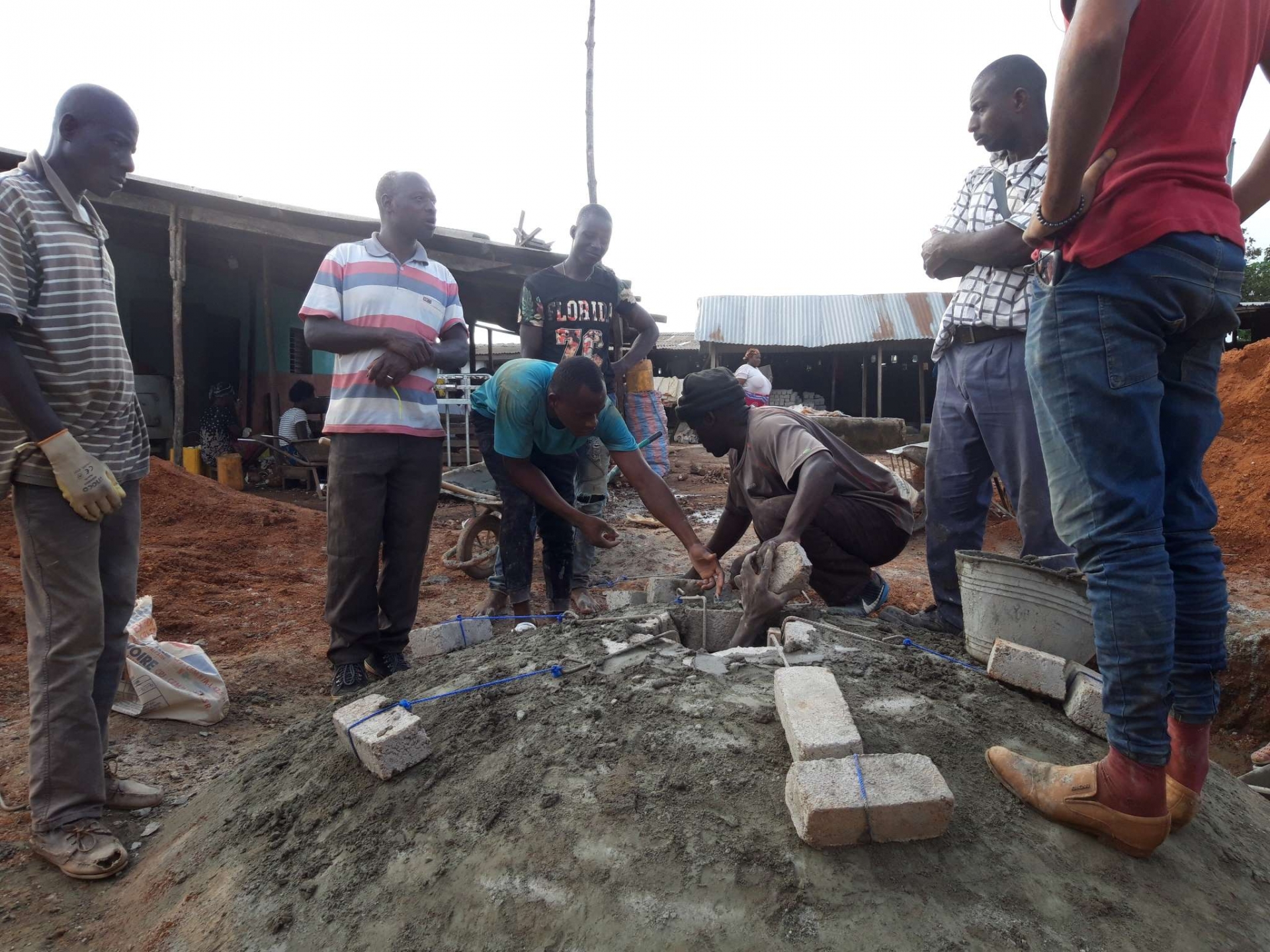
Related projects
